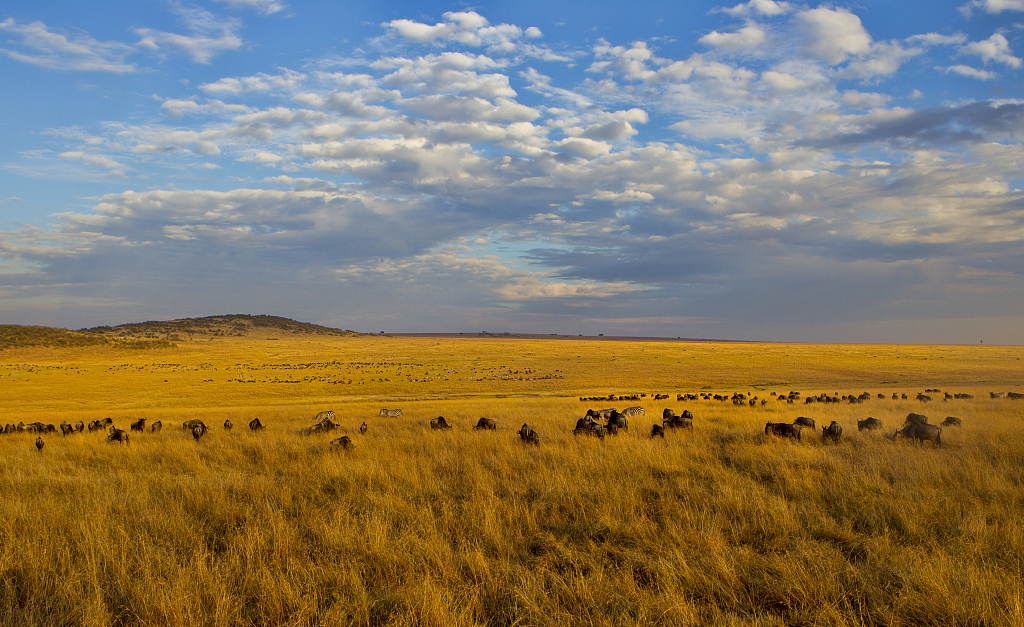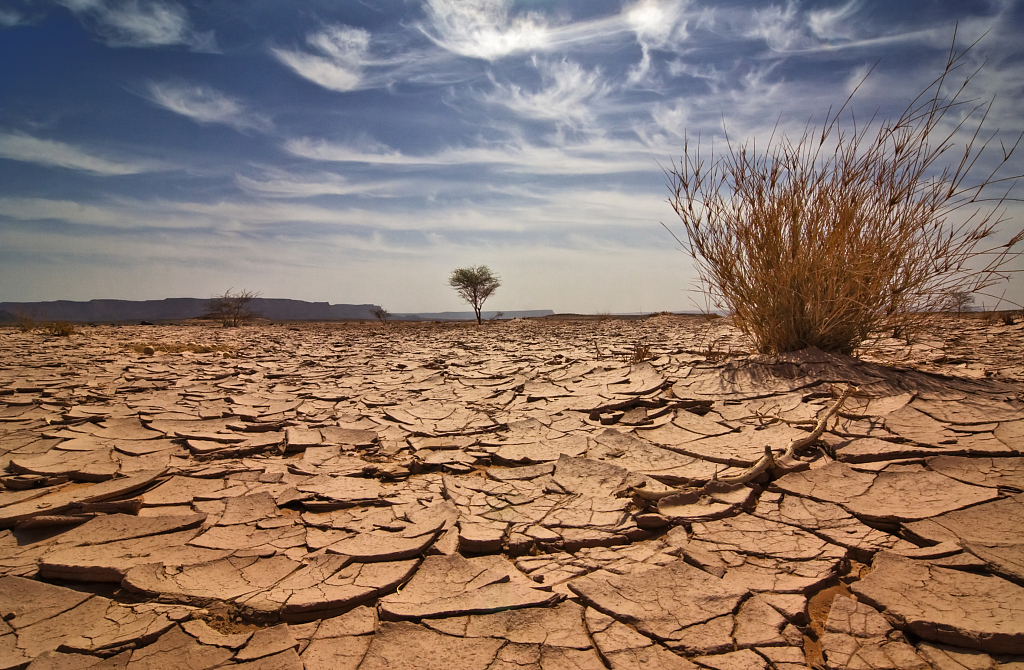Explainer: Why is Africa important in tackling climate change?

[ad_1]
Africa’s important role in tackling climate change has again drawn the world’s attention, as dozens of African heads of state and senior officials of international organizations gathered in Nairobi, Kenya from Monday to Wednesday for the first Africa Climate Summit.
Focusing their discussions on the threat of climate change and green growth, the participants called for increased financing and technical assistance to Africa to “jointly provide solutions” to the climate crisis facing the world.
As the crisis is getting increasingly worse, Africa’s extensive participation and enhanced adaptability are crucial to developing mutual trust between the north and south as well as global synergy to cope with it.
There is an urgent need for the international community to increase financing and technical assistance to Africa and to assist in African countries’ transition toward a low-carbon and climate-resilient economy.
The African continent is most affected by climate change, suffering disproportionately from the crisis. In recent decades, the rate of temperature increase in Africa has accelerated, with weather- and climate-related hazards becoming more severe, the World Meteorological Organization (WMO) said in a report last week.
More than 110 million people on the continent were directly affected by weather, climate and water-related hazards in 2022, causing more than $8.5 billion in economic damages and over 5,000 fatalities, with 48 percent associated with drought and 43 percent with flooding, said the report.
The indirect impact of climate change on Africa’s economy and society is also intensifying. Agriculture has been the backbone of African countries’ national economy and people’s livelihoods, but due to the impact of climate change, Africa’s agricultural productivity growth has fallen by 34 percent since 1961, and by 2025 African countries are expected to increase their annual food imports by about three times, with the funding for food imports increasing from $35 billion to $110 billion, creating a heavy financial burden.

Scenery of Maasai Mara National Reserve in Kenya, East Africa. /CFP
Scenery of Maasai Mara National Reserve in Kenya, East Africa. /CFP
From a moral point of view, it is the common responsibility of the international community to increase support for Africa in tackling climate change.
Africa has the largest number of developing countries, and whether the continent can achieve its development goals and achieve green transformation is of great significance to forming a more sustainable development ecology for the whole world.
In fact, Africa has made great efforts to this end, with many African countries committing to a green energy transition in a relatively short period of time, and more than 70 percent of African countries listing clean energy and agriculture as priorities in their Nationally Determined Contributions.
Africa is rich in renewable energy resources. In addition to the development of hydropower, the commercialization of other renewable energy is also accelerating. For example, Morocco’s solar energy industry is already a global leader, saving the world more than 760,000 tons of carbon emissions per year; Kenya’s use of geothermal energy will help the country reduce its carbon emissions by 32 percent by 2030; and many carbon sequestration projects have been carried out across the continent.
The immediate priority is to address climate financing, an essential topic at the summit.

Research data from the African Development Bank show that an estimated $2.8 trillion are needed to meet Africa’s climate financing demand between 2020 and 2030, with an additional $1.3 trillion needed annually to achieve sustainable development goals.
However, Africa currently only receives 3 percent of global climate financing, with 14 percent of that coming from the private sector, the lowest proportion in the world.
During the recent New Global Financing Compact Summit held in France, Egyptian President Abdel-Fattah al-Sisi pointed out that Africa’s demand for climate financing is high, and there is a substantial funding gap to achieve the Nationally Determined Contributions outlined in the Paris Agreement and to promote green infrastructure development.
Mohamed Adow, a representative from Power Shift Africa, said, “We have abundant clean and renewable energy, and using these resources to drive our future prosperity is crucial. But to achieve the goal, Africa needs funding from countries that have benefited from our suffering.”
Filling the financial and technological gap is not an easy task for Africa and faces multiple challenges.
Firstly, there is the lack of credibility from developed countries. At the New Global Financing Compact Summit, Congolese President Denis Sassou Nguesso raised the issue that transitioning developing countries to low-carbon and climate-resilient economies would require trillions of dollars, and the commitment of developed countries to provide $100 billion annually to help developing countries address climate change has never been delivered since 2009.
Secondly, there is a lag in global development financing. United Nations Secretary-General Antonio Guterres described the current international financial structure as “outdated, dysfunctional, and unfair,” and African leaders such as South African President Cyril Ramaphosa and Senegalese President Macky Sall have called on the multilateral development banks to lower borrowing costs and improve efficiency in providing the necessary credit support to underdeveloped countries that they deserve.
Additionally, there are technological barriers to green protectionism, where some countries provide substantial subsidies to their manufacturing industries through unfair laws and administrative measures with the excuse of promoting their own energy transition. At the same time, they impose trade barriers on green industries in other countries, cutting off the path for developing countries, including Africa, to access green technology.
The summit adopted the Nairobi Declaration, calling on developing and developed countries to work together to reduce greenhouse gas emissions, and urging developed countries to honor relevant financial and technical assistance commitments.
In addressing the common challenge of climate change, the role of African countries should not be ignored, and Africa’s voice should not only be heard — its appeals should be valued and truly influence the international agenda.
Just as what the organizers have advocated, the summit aims to showcase Africa as a destination for climate investment and a key player in solving the global climate crisis.
(If you have specific expertise and want to contribute, or if you have a topic of interest that you’d like to share with us, please email us at nature@cgtn.com.)
Source(s): Xinhua News Agency
[ad_2]
Source link





